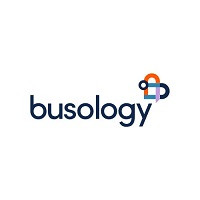The Intelligent Ride: Unlocking Advanced Capabilities with School Bus Scheduling Software

Strong 8k brings an ultra-HD IPTV experience to your living room and your pocket.
Unlock the full potential! Advanced school bus scheduling software offers predictive analytics, dynamic real-time adjustments, and sophisticated safety features for truly intelligent student transport management.
In an era defined by data and interconnectedness, the humble school bus is rapidly transforming into a smart, efficient, and highly secure vehicle. While basic route planning software has been available for some time, the latest generation of advanced school bus scheduling software is pushing the boundaries of what's possible in student transportation. These sophisticated systems leverage cutting-edge technologies like artificial intelligence, machine learning, and IoT integration to offer capabilities far beyond simple scheduling. This blog post delves into the advanced functionalities and strategic advantages that modern school bus scheduling software provides, empowering educational institutions to achieve unparalleled levels of safety, efficiency, and transparency in their transport operations.
The Leap to Advanced Scheduling: More Than Just Points on a Map
The transition from conventional to advanced school bus scheduling software represents a paradigm shift. It moves from static planning to dynamic, intelligent management:
Predictive Analytics: Utilizing historical data (e.g., traffic patterns, student pickup times, route performance) and real-time inputs (live traffic, weather forecasts) to predict potential delays or optimal routes for future runs.
Dynamic Re-routing in Real-time: The ability to instantly adjust routes and bus assignments in response to unforeseen events like road closures, sudden bus breakdowns, or emergencies, pushing immediate updates to drivers and parents.
Hyper-Personalized Routes: Creating highly granular routes that consider individual student needs, parent preferences (within school policy), and specific pick-up/drop-off requirements, while maintaining efficiency.
Integration with Smart City Data: Leveraging publicly available data on city infrastructure, construction, and events to proactively optimize routes.
This level of intelligence transforms transport management from a reactive process into a proactive, optimized system.
Cutting-Edge Features Redefining Student Transport
An advanced school bus scheduling software distinguishes itself through a suite of sophisticated features:
AI-Powered Route Optimization & Scenario Planning:
"What If" Scenarios: Simulate the impact of changes – adding a new school, expanding a zone, or changing bell times – on the entire transport network before implementation.
Fleet Sizing Optimization: AI algorithms can suggest optimal fleet sizes and types based on student growth projections and route efficiency, reducing unnecessary capital expenditure.
Cost Simulation: Accurately project fuel, labor, and maintenance costs for different routing strategies.
Enhanced Student Safety & Monitoring:
Automated Boarding/Alighting Verification: Beyond basic RFID, some systems incorporate integrated cameras with AI-powered anomaly detection (e.g., detecting if a child runs back towards the bus after alighting, or if an unknown person attempts to board).
Real-time Seat Occupancy Monitoring: Sensors in seats can verify actual occupancy, ensuring no child is left behind on the bus after a run.
Driver Fatigue Monitoring: Using telematics and sometimes in-cab cameras to detect signs of driver fatigue or distraction, triggering alerts to dispatch.
Secure Child Handoff Protocols: For younger students, systems can include digital sign-off processes to ensure children are only released to authorized guardians.
Proactive Fleet Health & Predictive Maintenance:
Integration with Vehicle Telematics/OBD-II: Direct connection to the bus's onboard diagnostic system provides continuous data on engine performance, tire pressure, fluid levels, and potential error codes.
Predictive Analytics for Maintenance: Machine learning analyzes vehicle health data to predict when specific components are likely to fail, allowing for pre-emptive maintenance and minimizing unexpected breakdowns.
Automated Service Alerts: Triggers alerts for scheduled maintenance, oil changes, tire rotations, and component replacements.
Omni-Channel Communication Hub:
Customizable Parent Notifications: Granular control over notification types (SMS, email, app push) and triggers (e.g., bus approaching, delay over 10 minutes, child off-boarded).
Two-Way Communication with Context: Parents can report issues (e.g., missing child, unsafe stop) with location data and photos directly through the app.
Multilingual Support: Ensuring effective communication with diverse parent populations.
Integrated Emergency Protocol: Automated system for mass notifications and coordination with emergency services in critical situations.
Robust Reporting & Compliance Automation:
Customizable Dashboards: Empowering administrators with real-time, customizable dashboards showing key performance indicators (KPIs) like on-time performance, fuel consumption, and driver safety scores.
Automated Regulatory Reporting: Generating complex reports required by federal, state, or local transportation authorities with minimal manual input.
Carbon Footprint Tracking: Monitoring and reporting on environmental impact, helping schools pursue sustainability goals.
The Transformative Impact: Building a Smart Transport Ecosystem
Implementing an advanced school bus scheduling software creates a ripple effect of benefits that permeate the entire school ecosystem:
Elevated School Reputation: Demonstrates a profound commitment to student safety, operational excellence, and technological advancement, becoming a significant draw for prospective families.
Enhanced Peace of Mind for Parents: The highest level of transparency and real-time information drastically reduces parental anxiety, fostering stronger trust in the school.
Significant Cost Optimization: Beyond fuel savings, predictive maintenance and optimized fleet utilization lead to long-term reductions in operational expenditure and capital investment.
Proactive Safety Management: Moving from reactive incident management to proactive risk mitigation, ensuring a safer environment for students and drivers.
Data-Driven Strategic Planning: Provides invaluable insights for long-term planning, resource allocation, and policy development within the transport department.
Increased Staff Efficiency and Morale: Reduces administrative burden, provides clear tools for drivers, and enhances dispatcher effectiveness, leading to a more positive work environment.
Environmental Stewardship: Contribute to sustainability goals by optimizing routes and reducing emissions.
Strategic Adoption: Key Considerations for Advanced Systems
Embracing this level of technology requires careful planning:
Comprehensive Needs Assessment: A deep dive into current challenges, future goals, and unique requirements (e.g., rural vs. urban routes, specific special needs).
Vendor Selection: Partner with a vendor known for innovation, robust security protocols, and exceptional, continuous support. Look for case studies and testimonials from similar institutions.
Pilot Program & Phased Rollout: Start with a pilot group of routes or a specific school to fine-tune the system and gather feedback before a full-scale rollout.
Extensive Training & Change Management: Provide thorough training for all users (administrators, dispatchers, drivers, and even parents via tutorials) and manage the transition effectively.
Data Integration Strategy: Plan for seamless integration with existing student information systems (SIS) and other relevant school platforms.
Cybersecurity Protocols: Ensure the chosen system has robust cybersecurity measures to protect sensitive student and operational data.
Conclusion
The future of student transportation is intelligent, safe, and seamlessly managed. An advanced school bus scheduling software is the cornerstone of this future, transforming the daily commute into a highly optimized, transparent, and secure experience. By leveraging the power of data, AI, and real-time connectivity, schools can not only meet but exceed the expectations of modern families, ensuring every student's journey to and from school is as reliable and safe as their learning environment itself. This isn't just about scheduling; it's about building a smart, secure, and sustainable transport ecosystem for the next generation.
Note: IndiBlogHub features both user-submitted and editorial content. We do not verify third-party contributions. Read our Disclaimer and Privacy Policyfor details.


